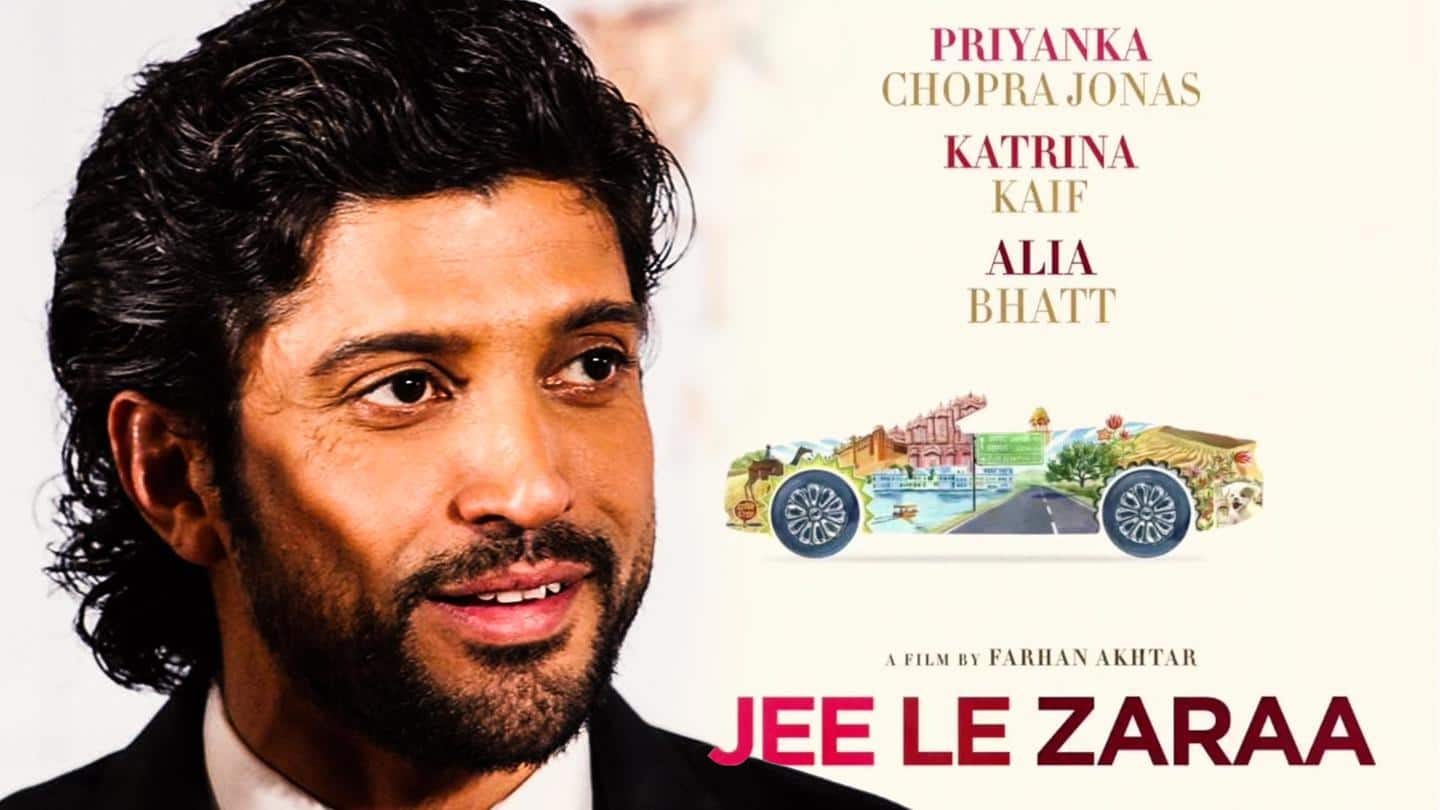
Why are heroes refusing to star in 'Jee Le Zaraa'?
What's the story
Back in August this year, Farhan Akhtar had surprised his fans by announcing his next directorial.
A road trip film, Jee Le Zaraa became more promising as it brought together superstars Katrina Kaif, Priyanka Chopra Jonas, and Alia Bhatt.
But a few months down the road, reports suggest the project has suffered a roadblock.
Apparently, no big actors want to play the male leads.
Context
Why does it matter?
The Bollywood film industry, like most movie fraternities, is heavily led by men.
While female superstars exist, often producers show apprehension about them carrying the movies on their shoulders.
More often than not, prominent actresses play eye-candies opposite male heroes to build a fan following in mainstream cinema.
Projects such as Jee Le Zaraa would definitely help in breaking some (patriarchal) walls.
Reports
Actors are apparently refusing thinking their roles aren't meaty enough
To pair with the leads, Akhtar reportedly wants top actors.
But male superstars are assuming they won't have much to do in the movie and hence refusing, reported Bollywood Hungama.
"It is tough casting the male leads when the female leads are already in place. All the top actors assume the women have meaty roles while the men are mere shadows," a source said.
Casting debacle
Now, Akhtar plans to cast himself to encourage others
Before you assume the film is a tit-for-tat situation as far as one-dimensional roles are concerned, hold your horses.
The portal added the male lead roles are actually quite important, so they won't be as flimsy as heroes are expecting them to be.
In fact, the Toofaan actor plans to cast himself as one of the male leads to set an example.
Quite amusing!
Reality
If report is true, it just paints a sad picture
The team was set to begin shooting from next year, although nothing has been confirmed.
Earlier, Akhtar had said, "Whether it's a drama, comedy or thriller, there should be films made about women."
But even a top director is reportedly finding it hard to cast actors opposite top actresses.
This just shows how hard it is to make women-centric mainstream films.